By Rik Langendoen
OK, I confess I am a bit fanatic about what I eat.
(Some would say I am more than a bit fanatic…).
In my defense, I believe I have five good reasons:
Life is blasting by waaaaayyy too fast;
I, therefore, want to be here on this Earth for as long as possible;
I have lost family members and friends to various diseases;
I want to be able to live life to its fullest by having both a happy body and mind; and
I am the healthiest I have ever been since focusing on what I eat.
I grew up on a small family-operated dairy farm here in Washington State. We raised much of our own food using what are considered today to be sustainable methods.
I didn’t know how fortunate I was at the time.
Did you know that much of the food we buy in our local grocery stores is much less nutritious than the food our parents and grandparents ate?
→Several years ago a Scientific American EarthTalk article entitled “Dirt Poor: Have Fruits and Vegetables Become Less Nutritious?” summarized the results of landmark studies that showed a significant decline in nutritional value of commercially-grown food over the past century.
“The main culprit in this disturbing nutritional trend is soil depletion: Modern intensive agricultural methods have stripped increasing amounts of nutrients from the soil in which the food we eat grows.”
Sadly, each successive generation of the food you eat is less good for you than the one before.
The article concluded the “key to healthier produce is healthier soil by alternating fields between growing seasons to give land time to restore would be one important step. Foregoing pesticides and fertilizers in favor of organic growing methods is good for the soil, the produce and its consumers. Those who want to get the most nutritious fruits and vegetables should buy regularly from local organic farmers.”
Did you also know it is estimated less than one percent of the Bainbridge Island population purchases locally-grown food? (If we don’t buy from them, we could lose them…).
And most if not all the local farmers use organic farming methods, even if they are not certified organic due to the cost, time and/or effort of obtaining the certification.
I know what you are thinking: Locally-grown food is more expensive than off-island commercially-grown food. But based on the above-mentioned studies, you are getting what you pay for.
In my next article I will tell you even more important reasons for eating locally grown food (I think you will be surprised; there was a hint earlier in this article…).
In addition, you can buy food directly from the farmers, which reduces the cost. If you want to learn more:
www.friendsofthefarms.org/links
Until next time, enjoy this last blast of winter.




